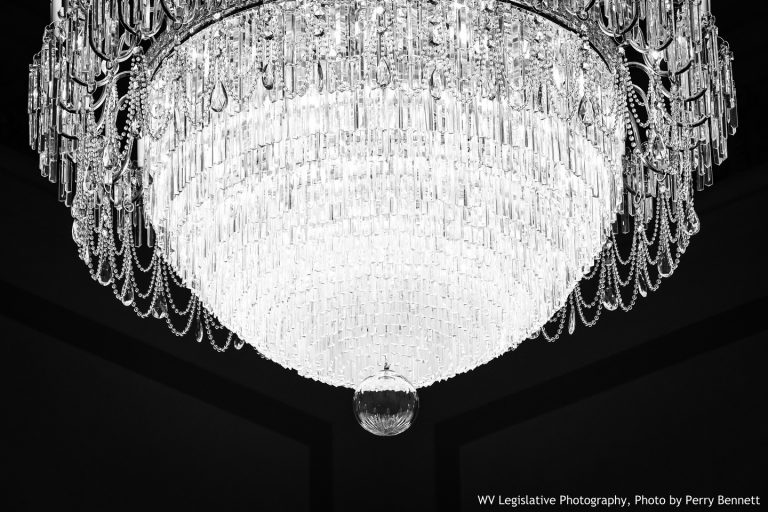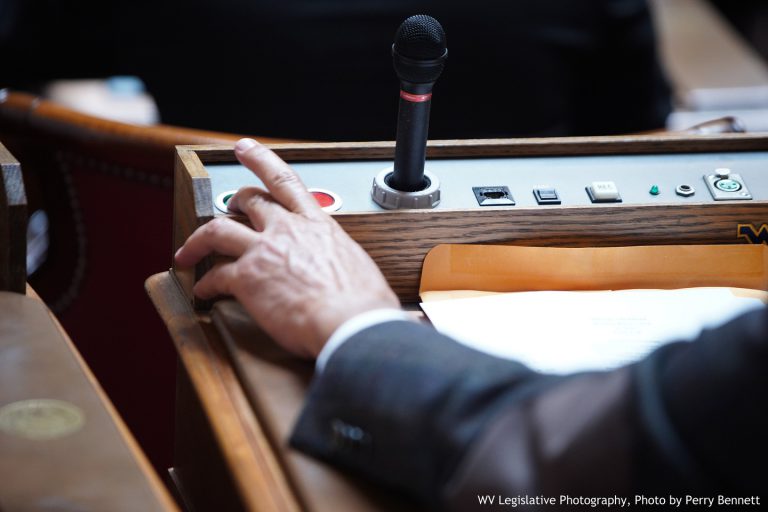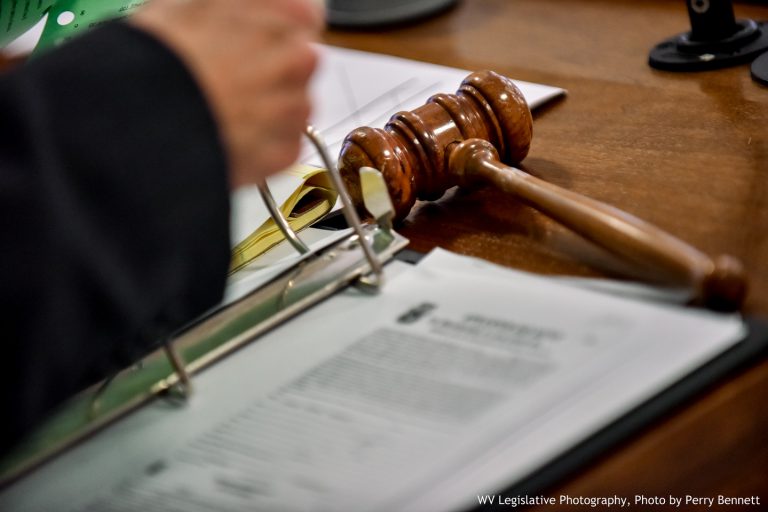As of 4 p.m., Wednesday, February 29, 2012, the 50th day of the 80th Legislature’s 2nd Regular Session, 1348 bills have been introduced in the House. Of those, 120 have passed the House and have moved on to the Senate for further consideration. Bills passed by the House this week include:
House Bill 2278 would authorize the use of additional mediums for use in archiving state records as well as allow county historical societies to obtain one copy of an archived state record without cost.
House Bill 2657 would create the West Virginia Religious Freedom Restoration Act. The bill would not give any government entity the right to burden a person’s religious beliefs or to deny government funds, benefits, or exemptions.
House Bill 2740 would remove any provisions that may prevent the installation and use of commercial or residential solar energy systems. In instances involving a housing development or association, the solar energy systems may be established or removed upon vote of the area’s members.
House Bill 4020 would put into place a program to recognize top-scoring students on the WESTEST2 as All-State students. The provisions of the bill would become effective for the 2012-2013 academic school year.
House Bill 4028 would give authorization to temporarily suspend the certification or licensure of emergency medical service personnel if the person is believed to be practicing procedures that may create a danger to public health or safety. If probable cause for suspension would exist, an emergency suspension would be issued and a hearing would be held within 10 days.
House Bill 4030 would prioritize the partial payment of costs, fines, fees, forfeitures, restitution, penalties or other costs imposed in a magistrate court in civil and criminal matters.
House Bill 4037 would give consideration of military training and education when determining professional or occupational licensing. Also, the bill includes legislative finding in regards to the military and lists provisions as to when a licensee can submit a waiver request to certain boards.
House Bill 4049 would require that the Department of Environmental Protection maintain an Office of Internal Auditing. The auditor staffed in the office would be required to have at least five years of auditing experience in a government agency.
House Bill 4068 would require antique motor vehicles be valued at salvage value for personal purposes and the value cannot exceed $1,000.
House Bill 4260 would make changes in order to clarify insurance coverage for autism spectrum disorders. The bill would specify application of benefit caps, add an evaluation of autism spectrum disorder to the specified coverage, and clarify the diagnosis, evaluation and treatment requirements.
House Bill 4327 would require pulse oximetry testing for newborns. The test would check for congenital heart defects that can cause severe and life-threatening symptoms and require intervention within the first days of life.
House Bill 4530 would create a new section of Code relating to the recovery of expanded net energy costs by electric utilities through the issuance of consumer rate relief bonds. The bill would authorize the Public Service Commission to consider and issue a financing order to regulated electric utilities to permit the recovery of the energy costs.
House Bill 4351, the Mine Safety bill, would allow miners to submit anonymous tips about safety issues, require ventilation plans be submitted, and allow families to be part of the interview process should another mining disaster occur.
House Bill 4475 would encourage recent graduates to remain in West Virginia by reducing the federal adjusted gross income. The tax credit would be applicable to those who receive a bachelor’s or graduate degree in science, technology, engineering, mathematics, nursing or teaching from any regionally accredited in-state or out-of-state higher education institution or any regionally accredited in-state community and technical college. Graduates must also remain in state after graduation.
House Bill 4583 would modify certain deadlines associated with the termination, resignation and transfer of school personnel – and sets the deadline for voluntary transfers to before the beginning of an instructional term.






 A typical day for a lawmaker may begin with a committee meeting. Legislators collaborate to form 19 Senate Committees and 18 House committees. Legislation is considered within these committees and amendments and recommendations are presented to the bodies at large. Each Delegate is a member of at least one major committee and each Senator is typically among the membership of two major committees. These committees, including the Judiciary, Education, Finance and Government Organization of either chamber, meet nearly every day, often twice a day, to discuss bills at length.
A typical day for a lawmaker may begin with a committee meeting. Legislators collaborate to form 19 Senate Committees and 18 House committees. Legislation is considered within these committees and amendments and recommendations are presented to the bodies at large. Each Delegate is a member of at least one major committee and each Senator is typically among the membership of two major committees. These committees, including the Judiciary, Education, Finance and Government Organization of either chamber, meet nearly every day, often twice a day, to discuss bills at length. This afternoon’s floor session began with the adoption of Senate Resolution 46 which honored and affirmed sister-state relationship between West Virginia and Taiwan Province, Republic of China.
This afternoon’s floor session began with the adoption of Senate Resolution 46 which honored and affirmed sister-state relationship between West Virginia and Taiwan Province, Republic of China. Today marks the 50th day of the 80th regular session. This day has been labeled “cross-over day,” which means today is the last day legislators can consider bills or joint resolutions on third reading in the house of origin, excluding the budget bill and supplementary appropriation bills. Legislators endured a lengthy floor session discussing and debating a total of 35 bills read on third reading during the morning session.
Today marks the 50th day of the 80th regular session. This day has been labeled “cross-over day,” which means today is the last day legislators can consider bills or joint resolutions on third reading in the house of origin, excluding the budget bill and supplementary appropriation bills. Legislators endured a lengthy floor session discussing and debating a total of 35 bills read on third reading during the morning session. Several Delegates including the Speaker of the House were moved to speak in favor of the bill regarding mine safety during the floor session this morning. After many heartfelt remarks,
Several Delegates including the Speaker of the House were moved to speak in favor of the bill regarding mine safety during the floor session this morning. After many heartfelt remarks,  The House passed several bills on 3rd reading today with one bill in particular considerable debate.
The House passed several bills on 3rd reading today with one bill in particular considerable debate.  In today’s floor session, the Senate passed 13 bills and read 45 for a second time. One of the bills that was passed is
In today’s floor session, the Senate passed 13 bills and read 45 for a second time. One of the bills that was passed is